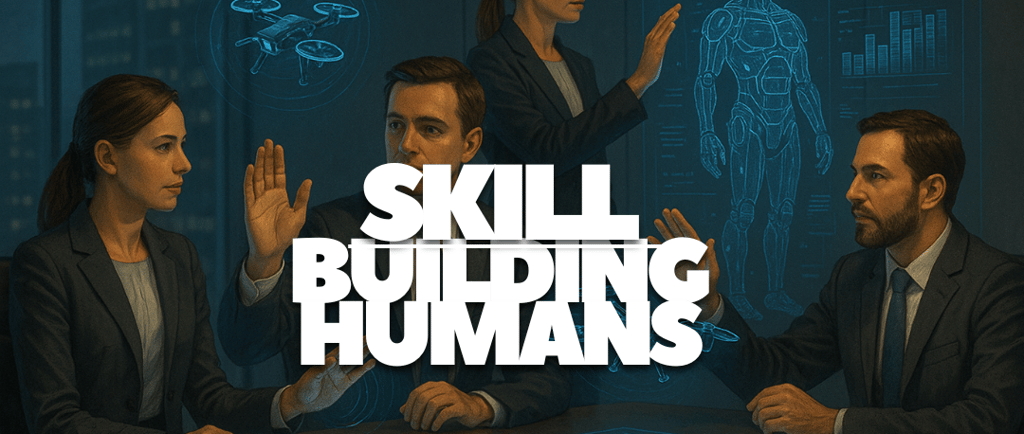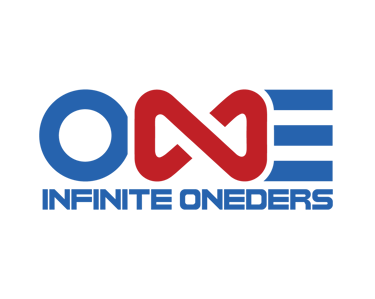The Business of Building Humans: Why Skill-Centric Leaders Will Shape the Future
“Businesses don’t grow. People do — and they carry the business forward.”
Shyjin Bhaskaran M
7/11/20253 min read


What Business Owners Must Ask Themselves
Most founders start with: “How can I scale?” “How do I outperform the market?”
But the real transformation begins when you ask: “Who do we need to become to lead this industry?” “What kind of people do we need to build?”
Because no matter what product you sell or service you deliver, at the core of every thriving organisation is a capable, evolving human ecosystem.
Skills: The New Infrastructure of Business
In a world of fast automation, unpredictable change, and infinite information, the real currency is no longer efficiency alone — it’s human capability.
Whether you're a factory, a fashion label, a clinic, a school, or a tech startup, you’re operating in an environment that demands:
Faster decision-making
Cross-functional collaboration
Deep emotional intelligence
Adaptability in chaos
Creative problem-solving
The challenge? Most teams aren’t trained for this reality.
And that’s where growth stalls — not because of market failure, but human unpreparedness.
The Hidden Cost of Not Building Capability
Here’s what we’re seeing across sectors:
Highly talented individuals underperform because they lack strategic clarity
Teams burn out solving the same problems without building better thinking models
Growth becomes reactive instead of proactive
Organisations invest in systems, but underinvest in the people running them
What looks like an “execution gap” is often a skill gap in disguise.
And most leaders don’t discover this until it's too late.
Building Humans Is No Longer Optional — It’s Foundational
It’s no longer enough to hire talent. You must grow it. Align it. Challenge it. Uplift it.
This isn’t about offering one-off workshops or inspirational speeches.
This is about creating a system where people:
Think beyond their roles
Understand how their growth aligns with the organisation’s goals
Learn continuously and consciously
Solve problems with ownership, not obligation
This shift transforms workplaces — from hierarchical to human-centred, from reactive to resilient.
The Shift Happening Across Industries
The good news? Some businesses are already stepping up.
We’ve seen manufacturers redefine how leadership happens on the shop floor. Creative teams are learning to work with structure, not against it. Clinics fostering emotional intelligence alongside medical efficiency. Schools are building 21st-century skills in students and teachers. Sustainability ventures align technical expertise with long-term vision.
What connects them all?
A clear recognition that the next stage of their growth depends on who they become as people, not just what they do as professionals.
How to Spot the Skill Gaps Holding You Back
Does your team need development? Here’s a simple framework to reflect on:
1. Is your team thinking ahead, or just getting things done?
Execution is survival. But foresight is growth.
2. Are your people learning from problems or repeating patterns?
Challenge without reflection is wasted effort.
3. Are roles expanding with your vision, or holding it back?
A company can’t grow beyond the capacity of the people inside it.
4. Are you investing in growth or just in output?
Productivity without development leads to plateaus.
If these questions stir discomfort, that’s a good sign. It means your business is ready to grow in ways that matter.
So, What Does It Look Like to Build Capability?
The answer is different for every organisation — but here’s what the shift usually includes:
Clarifying the kind of future-readiness your industry demands
Designing development experiences tied directly to real-world challenges
Creating learning rhythms that feel natural inside the business workflow
Helping individuals discover their potential and align it with their purpose
Encouraging leaders to be cultivators, not controllers
And most importantly, treating skill-building not as an event, but as a culture.
This Is the Entrepreneur’s Advantage
As a business owner, you don’t just set targets — you set the tone.
You have the opportunity to build something that doesn't just perform, but endures. Not just a workforce, but a force for innovation. Not just a business, but a legacy of people capable of more than they imagined.
The best leaders don’t just chase growth. They cultivate it in others. They don’t just scale operations. They scale mindsets. They don’t just build companies. They build humans — and that changes everything.
What Happens When You Invest in the Right Capabilities
We’ve witnessed it firsthand:
Teams once stuck in operational firefighting begin solving with vision.
Individuals rise from self-doubt to strategic influence.
Organisations shift from fragile to future-proof.
And yes — performance, revenue, retention, innovation — all of it improves.
But the real win? You become the kind of business people want to grow with, not just work for.
Final Thought: This Is the Business of the Future
Whether you're leading a team of 5 or 500, your biggest responsibility — and opportunity — is the same:
To build people who can build the future.
Because the truth is:
If you're not intentionally building humans, you might unintentionally be holding them back. And eventually, that holds back your business too.
Ready to begin this shift?
You don’t need a revolution. You need a mindset change — and a partner who sees growth the way you do: as human-first, business-smart, and future-ready.
Let’s start a quiet evolution — one human at a time.
